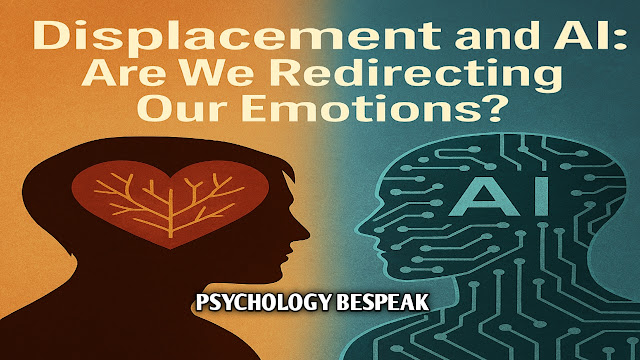The Psychology of April Fool’s Day
The Psychology of April Fool’s Day
Today during tea time I whispered
that today the March is culminating and from tomorrow April will commence. To this
my mom reacted that these days people do not celebrate “April Fools Day” as
they use to celebrate earlier. Then she went on to describe the various pranks
the people played.
While she was describing
all this my thoughts focussed on: which days people celebrate more these days? And
what is the psychology behind each of these festivals. Then I thought why not
write an article on “The Psychology of April Fool’s Day”.
Before beginning the topic,
The Psychology of April Fool’s Day let’s start with history of April Fool Day
so we have a better insight into it. So :
History of April Fool’s Day:
There are a number of
theories behind the origin of April Fool’s Day, but one that is most commonly mentioned
is the switch between calendars. Before the adoption of the Gregorian Calendar
in 1582, the New Year had been celebrated on April 1st. After that day was
switched to January 1st, those who still celebrated it on April 1st were
considered “fools.”
Irrespective of the very
fact, the concept of practical jokes themselves existed far before it was
recognized as an international celebration. So why have they been so popular
over time?
The Psychology of April Fool’s Day:
April Fool’s Day (also
known as All Fools Day) is celebrated by playing practical jokes and pranks. It’s a day that brings about laughter and
mirth. All that humour, mocking, warm
feelings, wit and jests comprise a complex social and psychological phenomenon,
known as humour.
In everyday life with
hardships involved in it, many of us have lost the capability to unconsciously
roar with laughter like we used to when we were young children. April Fools Day reminds us to be happy and
enjoy life. According to an old Yiddish proverb “What soap is to the body,
laughter is to the soul.”
Why is humour
important?
Research tells us:
1.
Smiling and laughing are contagious so you
too end up smiling / laughing when others are.
2.
Positive emotions make the brain feel good
by releasing a ‘feel good’ hormones.
3.
Humour and laughter block out negative
emotions as it is almost impossible to feel sad or angry at the same time as
laughing.
4.
Humour boosts the immune system and
improves sleeping patterns.
5.
Humour has been used to reduce anxiety and
help people adjust to new situations.
6.
Humour can also boost self-confidence.
7.
Humour allows things to be said that are
otherwise too ‘heavy’ or difficult for the conversation, because they can be
said more lightly.
8.
Laughter increases social connection as it
makes you perceive the other person as more similar to yourself.
But surely laughing at
the expense of a fool is not a very pleasant thing to do? Surely Schadenfreude,
as the Germans call “joy at someone else’s misery”, is something to be
discouraged, and certainly not given its own day of celebration? However, a
brain-scanning study showed that Schadenfreude activates brain regions
associated with feelings of pleasure, while another study suggested that the
feeling of Schadenfreude might be associated with the production of
oxytocin – the hormone released in pleasurable acts of social bonding, such as
kissing, sex, and child-caring. So rather than denouncing April Fool’s Days,
celebrate its potential benefits. The laughter might not only make you
healthier, but more creative too.
Humour, in general, is
good for us. In fact, research has shown that if you simply force yourself to
laugh for 12 seconds every day, it improves well-being.
Laughter itself releases
a lot of chemicals in the brain (endorphins and oxytocin to name a couple) that
are associated with happiness and social bonding.
Some sociologists speculate
that practical jokes are a subtle form of “play-fighting.” They’re a way to
test the self-awareness of others in a typically benevolent manner.
Furthermore, practical jokes also imply a sense of closeness in the
relationship.
That is, you tend to
prank those you believe you’re close with or can handle the joke. Think about
it. If someone plays a prank on you, that means they spent effort and time to
set it up and knew that your relationship was strong enough to withstand the prank.
Maybe the conclusions can
be found by Ramon Mora-Ripoll, M.D., Ph.D., medical scientific director
at Organización Mundial de la Risa, Barcelona, Spain, in his article, “The
therapeutic value of laughter in medicine” sum it up best: Laughter has shown
physiological, psychological. social, spiritual, and quality-of-life benefits.
Adverse effects are very limited, and laughter is practically lacking in
contraindications. Therapeutic efficacy of laughter is mainly derived from
spontaneous laughter (triggered by external stimuli or positive emotions) and
self-induced laughter (triggered by oneself at will), both occurring with or
without humor. The brain is not able to distinguish between these types;
therefore, it is assumed that similar benefits may be achieved with one or the
other. Although there is not enough data to demonstrate that laughter is an
all-around healing agent, this review concludes that there exists sufficient
evidence to suggest that laughter has some positive, quantifiable effects on
certain aspects of health. In this era of evidence-based medicine, it would be
appropriate for laughter to be used as a complementary/alternative medicine in
the prevention and treatment of illnesses, although further well-designed research
is warranted.¹
So this April Fools’ Day,
embrace laughter and humour. Laugh loudly and regularly and help others laugh
too by sharing positive, appropriate and harmless humour.
References:
Carey, B. (2008). April
fool! The purpose of pranks. New York Times. April, 1.
http://www.nytimes.com/2008/04/01/health/01mind.html
Szalavitsz, M. (2011).
Why laughing at yourself may be good for you: First ever study. TIME Magazine.
August, 9. http://healthland.time.com/2011/08/09/why-laughing-at-yourself-may-be-good-for-you-first-ever-study/
¹ Mora-Ripoll R. The
therapeutic value of laughter in medicine. Altern Ther Health Med. 2010
Nov-Dec;16(6):56-64. PMID: 21280463.





Comments
Post a Comment